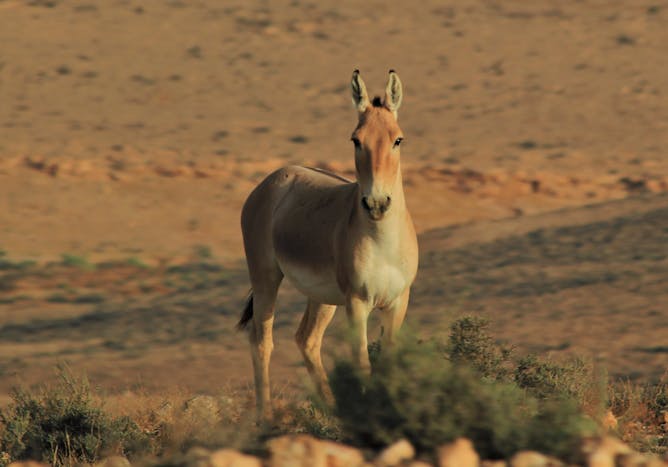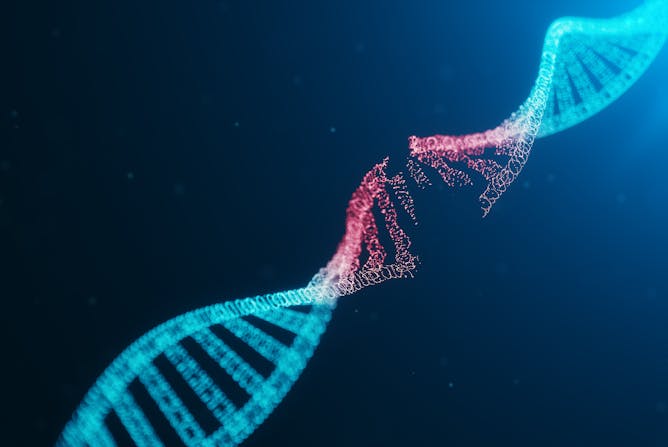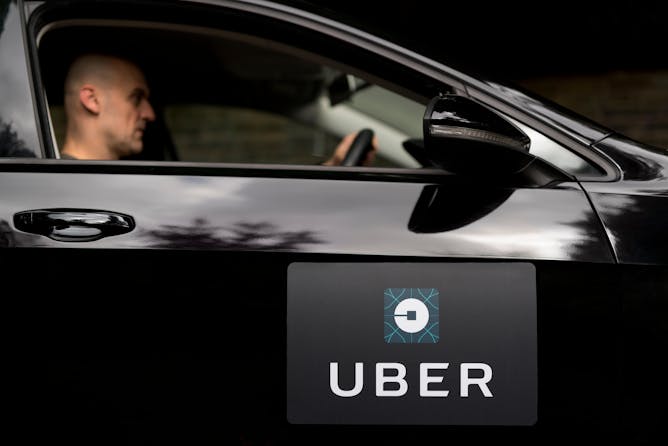|
|
|
|
Scientists working to save endangered species are wary of interbreeding genetically distinct creatures, lest they lead to hopelessly sterile results – like when a horse and a donkey produce a mule. And yet, the accidental crossbreeding of two different lineages of the Asiatic wild ass (a relative of the domesticated donkey) didn’t doom the resulting hybrids to extinction. Instead, it helped revive a thriving population of the species in the
Negev Desert, nearly a century after the original one died out.
New research showing just how diverse this hybrid wild ass’s DNA is highlights what a success the accidental experiment was – not least because other attempts to reintroduce wild asses with purebred members of a single subspecies have all failed. So rather than trying to preserve the genetic purity of an endangered species, keeping an open mind to interbreeding may be a better strategy.
It’s now two decades since the human genome was sequenced by scientists – “the most important, most wondrous map ever produced by mankind” according to President Bill Clinton at the time. But on its 20th anniversary, we hear from two geneticists who argue the intervening years have yielded surprisingly little to celebrate.
And after Uber drivers spent the weekend celebrating a Supreme Court ruling that classed them as workers with employment rights not independent contractors, we learn what that could mean for thousands of other people employed in the UK’s gig economy.
|
Jack Marley
Environment + Energy Editor
|

|
|

A hybrid of the Turkmen and Iranian wild ass, introduced to Israel in 1968.
Lilith Zecherle
Lilith Zecherle, Liverpool John Moores University; Hazel Nichols, Swansea University; Richard Brown, Liverpool John Moores University
By only focusing on preserving the genetic purity of a species, conservationists risk the extinction of isolated populations.
|

Rost9/Shutterstock
Alasdair Mackenzie, University of Aberdeen; Andreas Kolb, University of Aberdeen
The achievement didn't live up to the hype, but it has illuminated new areas of 'genetic dark matter'.
|

Driving forwards?
Russell Hart / Alamy Stock Photo
Jessica Gracie, University of York
The UK's Supreme Court has ruled that drivers are entitled to workers' rights.
|
Business + Economy
|
-
John Tribe, University of Liverpool
Under insolvency law, there's an order in which creditors get paid from whatever is left of a company.
-
Antonios Siganos, University of Glasgow
How you can gauge investors' sleepiness by using Google search data.
-
Sascha L. Schmidt, WHU – Otto Beisheim School of Management; Nicolas Frevel, WHU – Otto Beisheim School of Management
A panel of winter sports experts told us that pandemic-enforced technological advances are providing hope for the shattered sector.
|
|
Arts + Culture
|
-
Daniel Cook, University of Dundee
Despite little formal education, Hogg wrote one of the finest novels in Scottish literature, a disturbing tale of the divided self that still resonates.
-
Amy Louise Blaney, Keele University
It's a malleable mythos that has been adapted by kings and queens as well as artists and filmmakers.
-
Dominic Malcolm, Loughborough University
The popularity of cricket is not as dependent on TV broadcasts as you might think.
|
|
Politics + Society
|
-
John McGarry, Staffordshire University
If anything, the past few years have shown us why it should be difficult for a prime minister to call an election at will.
-
Thomas Thurnell-Read, Loughborough University
Pubs are recognised as important assets to their communities, providing economic and social value alike.
|
|
Health + Medicine
|
-
Grace C Roberts, Queen's University Belfast
Some evidence suggests the immune response to asthma may offer some protection against COVID.
-
Jane Ogden, University of Surrey
Our study found that people who prepared their own food or watched their food being made ate more on average.
|
|
|
|
| |
Featured events
|

|
Whiteknights, Reading, West Berkshire, RG62UR, United Kingdom of Great Britain and Northern Ireland — University of Reading
|

|
Online event, N/A, London, City of, N/A, United Kingdom of Great Britain and Northern Ireland — University of Westminster
|

|
East Road, Cambridge, Cambridgeshire, CB11PT, United Kingdom of Great Britain and Northern Ireland — Anglia Ruskin University
|

|
University of Birmingham Facebook (Live), Birmingham, Birmingham, B152TT, United Kingdom of Great Britain and Northern Ireland — University of Birmingham
|
|
|
|
| |
| |
| |
| |
| |
|
|
|
|
|
|
|